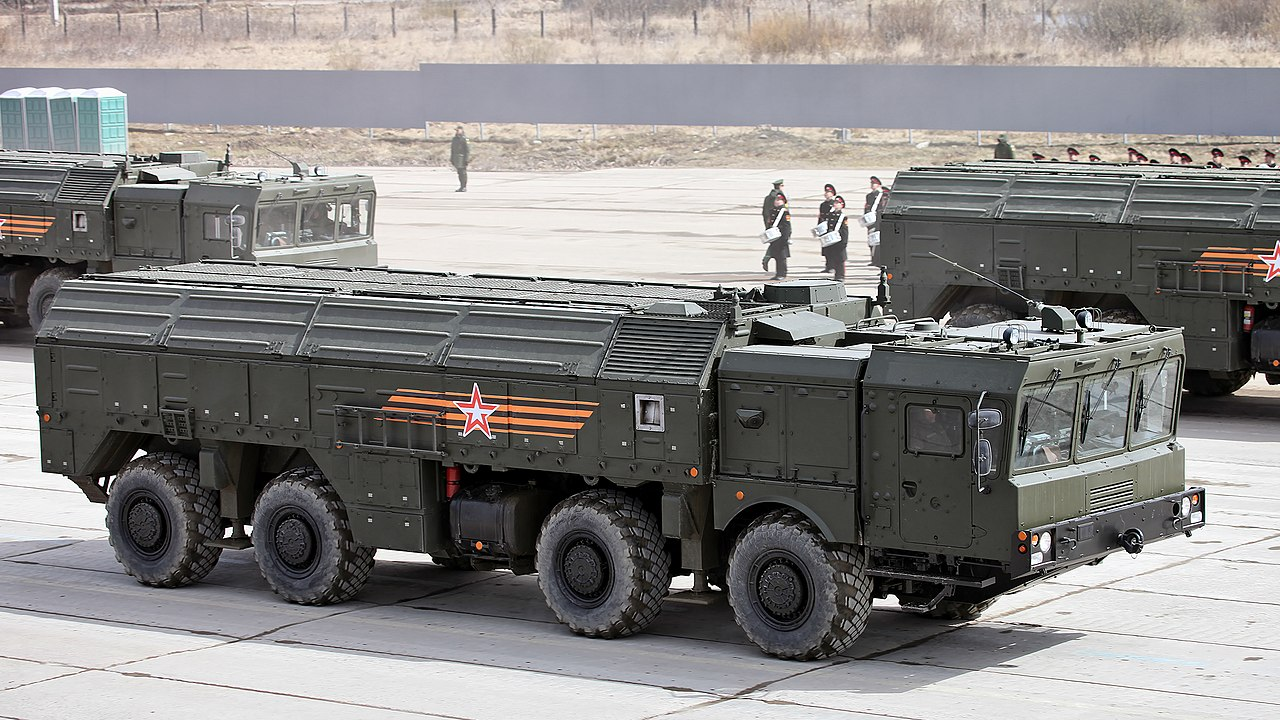“Iskander” missile deployments will have political consequences
 The situation got worse
The situation got worse

The transfer of cruise missiles from Russia to Belarus may have serious political consequences, beyond the military strategy.
On February 1st, it was officially announced that the Belarusian army has begun independent operation of the Iskander missile system. Judging from the photographs accompanying the announcement, Russia has supplied 9M723 ballistic missiles (Iskander-M, as stated by the Russian Foreign Ministry), and also Iskander-K cruise missiles, which are claimed to have a range of less than 500 km. However, the information is ambiguous.
At least two cruise missile types are officially confirmed – the 9M728 (R-500) and the 9M729. The technical characteristics of these missiles are not publicly stated, and there are not even verified photo or video images of the 9M729. It is unclear whether they use a common launch vehicle or whether a separate one has been created for the 9M729, as claimed by Russia.
The United States believes the 9M729 is a land-based version of the Kalibr naval cruise missile and withdrew from the Soviet-American intermediate-range missile treaty of 1987 on this basis since the treaty required that signatories refrain from developing ground-based cruise and ballistic missiles with a range of 500-5500 km.
Belarus assumed the same treaty obligations as the USSR and did not subsequently repudiate them; consequently, the treaty obligations continue to formally apply to Minsk. Given the secrecy and political excitement around the 9M729, it is probable that Belarus received only 9M728 cruise missiles about which the West has much less suspicion.
By itself, the transfer of the Iskander system to Minsk does not represent a fundamental change in the regional military-strategic situation because these weapons have been present in Kaliningrad region since 2018. It is unlikely that a significant number of missiles would be transferred, given the ongoing war and Russia’s own need for high-precision weapons. Obtaining the Iskander system is primarily a political victory for Lukashenka, who has been seeking this since 2007.
However, the transfer of 9M728 missiles created grounds for accusations that Minsk and the Kremlin are violating the missile proliferation regime. Limiting the spread of missile technology, and technologies for the production of weapons of mass destruction is a key pillar of American foreign policy, so we can expect a political response and further sanctions.
Subscribe to our newsletter




Situation in Belarus
Constitutional referendum: main consequences


 Video
Video
How to count the political prisoners: are the new criteria needed?


 Video
Video
Paternalism In Decline, Belarusian Euroscepticism, And The Influence Of Russia


 Video
Video












